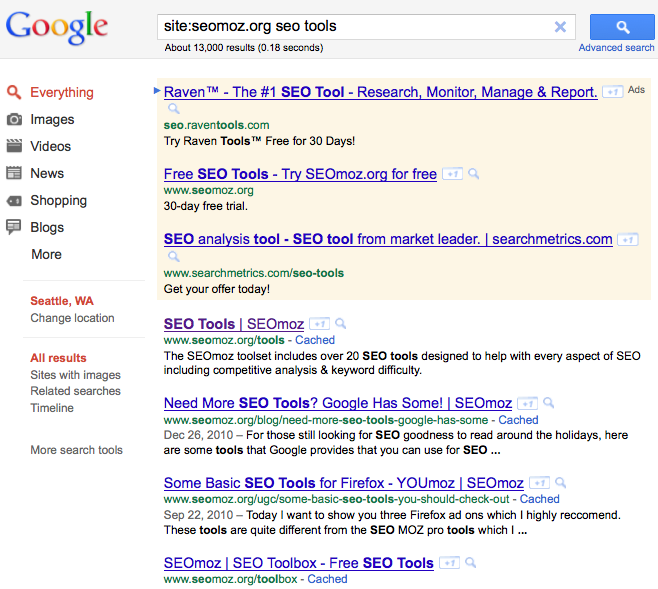The Most Economical Way to Drive More Ecommerce Traffic to Your...
By Tom Wintaugh
Read on to learn more...
 By Miva | July 28, 2011
By Miva | July 28, 2011
Want to read this blog offline?
No worries, download the PDF version now and enjoy your reading later...
Today’s guest blog post comes from Gillian Muessig, President and Co-Founder of SEOmoz.
Being found in the SERPs (Search Engine Results Pages) when folks are looking for your products/services is the key to ecommerce success. That process, keyword research, starts with understanding which words folks are typing into the search engines when they need something you might be able to provide to them. So where do you start?
Even if you don’t use paid ads, set up a Google Adwords account and start searching for keywords you intuitively know are important to your business. You may be surprised at the other keywords that pop up in the results box. With this simplest of all starts, you may find thousands (or more) searchers are using terms you hadn’t thought of.
This amazing source for locating powerful keywords sits at our fingertips and very few site owners ever take a deep look into it. The search box on your website will tell you exactly what customers who bothered not only to click through your online organic listings, ads, social media, citations, and inbound links are looking for on your website that they cannot find. That’s the critical piece: these folks are searching for stuff to buy on your website and they are not FINDING it!.
Check the terms that brought you sales. The most popular free analytics tool to let you see this info is Google Analytics. I highly recommend that you have it and use it no less than weekly, preferably far more frequently. Track things that go ‘right’. In other words, look at people who buy, those who buy more, and those who buy frequently.
Which search terms bring them to your website? Do these searchers consistently use your internal search to locate products? What search engine or other source do they arrive from? If they arrive from pages that are not search engines, what terms brought them to your website? It was probably a keyword or key phrase that linked to your site, so grab those keywords. They obviously convert for you.
If your business is very small, you’re probably wearing almost all the “hats” in your company. When thinking about keywords, think like a sales person or customer service person. In other words, think about the words your customers use when talking to you about your products. You know you’re selling lavender wodgets, but all your first time customers call it a “purple widget”. These are super-valuable keywords, especially in B2B industries, where finding new clients depends on educating your potential market. Start with the words they use; then you can educate them, providing them with the language of TribalSpeak.
Listen carefully to your industry’s TribalSpeak – the language that you and your colleagues use when talking about your products/industry. These are the terms seasoned buyers will use. For new lead-gen, you’ll want non-TribalSpeak terms; for staying in front of your existing market, you’ll want the TribalSpeak terms.
Do a search to determine the keywords your competitors are using. A site search is a search (shown in Google below) which limits the results to pages on a specific website. In this case, I asked Google to show me all the page results on the website, “www.SEOmoz.org” that rank for the term “SEO tools.” By looking at the content of these pages, I may be able to glean additional keywords that I haven’t thought of
Once I have my initial keyword list built, I’ll check to see how difficult it will be to rank for these terms. I use the Keyword Difficulty Tool at SEOmoz.org. While this is not a free tool – and all the other tips above are free to use – I will provide an in-depth look at how to use this tool for the next Miva Merchant Newsletter issue and I’ll provide a code so you can all check it out for free. Stay tuned….

Author's Bio
Miva
Miva offers a flexible and adaptable ecommerce platform that evolves with businesses and allows them to drive sales, maximize average order value, cut overhead costs, and increase revenue. Miva has been helping businesses realize their ecommerce potential for over 20 years and empowering retail, wholesale, and direct-to-consumer sellers across all industries to transform their business through ecommerce.
Copyright © 1997 – 2024 Miva®, Miva Merchant®, MivaPay®, MivaCon®, Camp Miva®, Miva Connect®, Miva, Inc. All Rights Reserved.